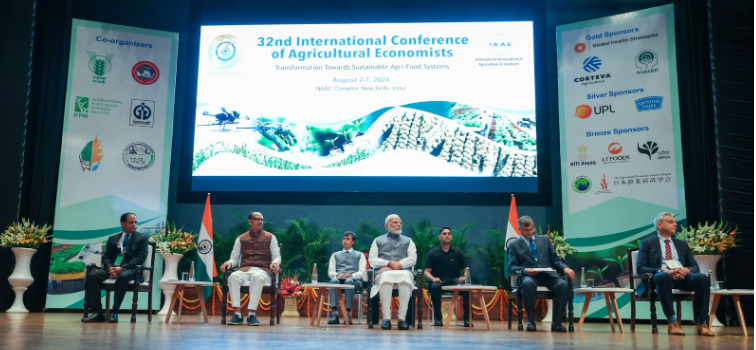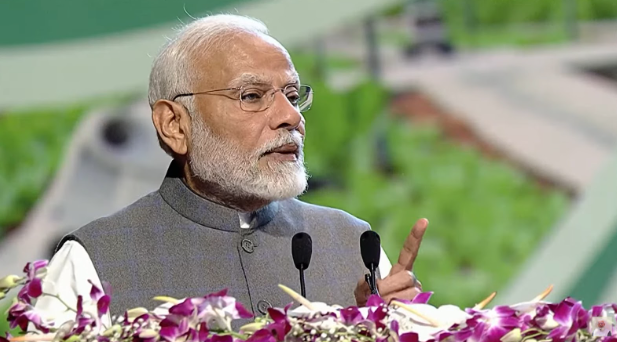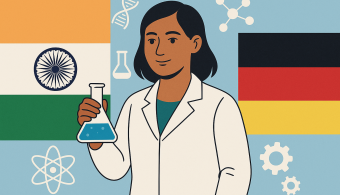India’s Global Contributions and Sustainable Farming Initiatives
Addressing the global context, Modi remarked, “There was a time when India’s food security was a matter of concern for the world. Now, India is providing solutions to global food and nutrition security.” He emphasized India’s vision for global welfare through initiatives like “One Earth, One Family and One Future,” “Mission LiFE,” and “One Earth, One Health.”
Modi showcased India’s efforts in sustainable agriculture, focusing on climate-resilient farming. He highlighted that the government has introduced 1,900 new climate-resilient crop varieties over the past decade. He pointed to the success of chemical-free natural farming, saying, “The positive results of promoting chemical-free natural farming on a large scale can be seen in the country.”
Technological Advancements and Policy Reforms
The Prime Minister highlighted significant technological and policy advancements in Indian agriculture. He mentioned initiatives such as the soil health card, solar farming, digital agriculture markets (e-NAM), Kisan credit cards, and PM Fasal Bima Yojana.
He emphasized the importance of research and development, noting that the Indian Council of Agricultural Research (ICAR) boasts over 100 research institutes and more than 500 agricultural colleges.
Addressing Global Challenges: Nutrition, Water Scarcity, and Climate Change
Modi acknowledged the interconnected challenges of nutrition, water scarcity, and climate change, presenting millet as a superfood solution. He said, “Black rice from Manipur, Assam, and Meghalaya is the preferred choice due to its medicinal value.” He expressed India’s eagerness to share its millet basket with the world, noting the significance of the International Year of Millets.
The Prime Minister reiterated India’s commitment to achieving a 20% ethanol blending target in petrol, highlighting the environmental and economic benefits. He stated, “India’s experience is valuable for discussions on food system transformation and is sure to benefit the global south.”
ICAE Conference: A Global Platform for Agricultural Innovation
The ICAE conference, attended by approximately 1,000 delegates from 70 countries, is organized by the International Association of Agricultural Economists and runs from August 2 to 7. The theme, “Transformation Towards Sustainable Agri-Food Systems,” aligns with India’s emphasis on sustainable agriculture as highlighted in the Union Budget 2024-25.
Modi underscored the importance of global partnerships in tackling agricultural challenges. He mentioned that the conference provides a platform for young researchers and leading professionals to present their work and network with global peers. “This event aims to strengthen partnerships between research institutes and universities, influence policymaking on both national and global scales, and showcase India’s agricultural progress,” he said.
The Prime Minister concluded by emphasizing India’s pivotal role in shaping global agricultural discourse and promoting advancements in digital and sustainable agriculture. He remarked, “Be it farming on the land, in the Himalayas, in the desert, in water-scarce regions, or coastal regions, this diversity is crucial for global food security and makes India a ray of hope in the world.”




